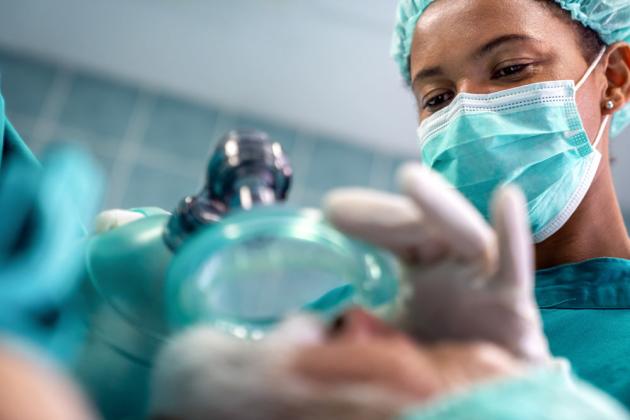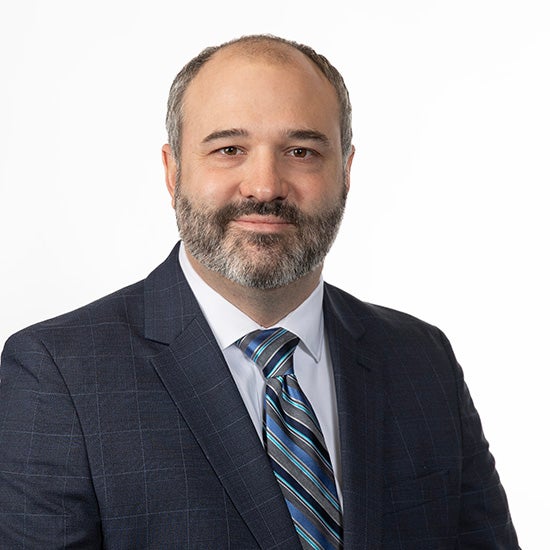
Anesthesiologist Assistant Studies (M.S.)
Program Overview
Impact Lives as a High-Demand Anesthesiologist Assistant.
Lipscomb University’s Master of Science in Anesthesiology is designed to prepare the next generation of anesthesiologist assistants, delivering highly skilled professionals to meet a growing demand in the health care workforce. This new program—the first of its kind in Tennessee—will produce graduates who are thoroughly trained in anesthesiology support and patient care.
Anesthesiologist assistants play a crucial role in the health care system, operating as physician extenders in the anesthesia care team and performing essential patient safety measures, including life support interventions. Recognized for their extensive science and pre-medical training, anesthesiologist assistants help improve patient outcomes and enhance care delivery, according to the American Society of Anesthesiologists. Nationally, the anesthesiologist assistant job market is projected to grow by 26.6% by 2032, with an estimated median salary of $215,000, according to Salary.com.
Lipscomb’s Anesthesiology Assistant Studies program is uniquely structured to prepare students to thrive in this expanding field. Upon successful completion of the certification exam, graduates will enter the workforce equipped with cognitive (knowledge), psychomotor (skills), and affective (behavior) expertise. The rigorous 28-month curriculum includes coursework in pharmacology, airway management, perioperative assessments, and anesthesia monitoring and technology. Students will gain an appropriate sequence of classroom and laboratory experience along with a minimum of 2,000 clinical hours—including 600 patient cases—to ensure they are fully prepared for certification and practice.
The Anesthesiologist Assistant Studies program will produce competent, caring professionals dedicated to contributing meaningfully to the health care field. Lipscomb graduates will not only be clinically prepared but will also embody Christian values, going out into the workforce with strong ethics, compassion, and a commitment to patient-centered care—distinct qualities that set them apart in health services.
With an application opening in early 2026, classes will begin in Fall 2026. The program is seeking accreditation with the appropriate organizations.
Admission Requirements
Our Admission Process
Admission to the Anesthesiologist Assistant Studies program is a competitive process and will follow a holistic application review to identify appropriate candidates for interviews and potential enrollment. For Fall 2026 enrollment, Lipscomb will utilize an internal application process rather than the Centralized Application Service for Anesthesiologist Assistants (CASAA). For Fall of 2027 enrollment, Lipscomb anticipates utilizing CASAA.
Important Dates:
Application Opens: Mid-January, 2026 (NOW OPEN)
Application Deadline: Friday, March 20, 2026
Interview Period: February through the end of April 2026
Understanding Holistic Application Reviews
Many factors are considered in the holistic review of the application, interview and admissions process. They may include the following: academics, communication skills, letters of recommendation, problem-solving skills, professionalism, work experience, degree earned, research, volunteer service, interview performance, attitude, timeliness and other factors. These help differentiate applicants who possess the highest likelihood of succeeding as part of the health care team. No assurances or guarantees are given or implied based on the completion of the prerequisites or achieving a high level of academic performance.
Admission Requirements
Courses
Note: This Curriculum is under review and subject to change.
Students in the Anesthesiologist Assistant Studies program will take a range of courses covering both classroom and clinical hours.
Tuition & Aid
Tuition and fees for enrollment in the program are estimated at this time. Annual tuition is anticipated at $70,000 per year with a 3% increase yearly. The program cost estimate is $163,000 with additional student activity fees of $3,282 per year.
Applying for Financial Aid
We encourage all students to file their Free Application for Federal Student Aid (FAFSA) and apply for financial aid. Doing so is the only way to know what aid you are eligible to receive. Applying for aid does not affect your chances of being admitted to Lipscomb. We recommend that the FAFSA be filed by April 1. If you do not have your tax return completed by then, go ahead and file the FAFSA. You can always amend your FAFSA once your return is complete.
- Complete your FAFSA by going to studentaid.gov and electronically submitting it.
- Be sure to have your tax information from the most recent tax year and your driver's license.
- If you have filed a FAFSA before, you will need your FSA ID.
- If you have not filed a FAFSA before, visit studentaid.gov to request an ID.
- Lipscomb University's school code is 003486 (to be used in step six on the FAFSA).
Job Growth by 2032




